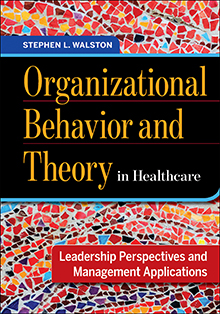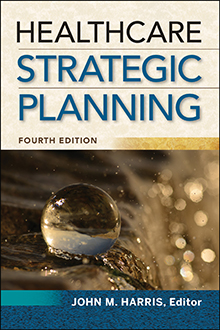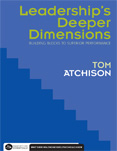HAP Holiday Sale | 20% Off
HAP Holiday Sale - Order any book now through January 3, 2025 and receive a 20% discount off the member and non-member prices when you use HOLIDAY24 at checkout. This discount excludes any multi-book sets and bundles that are already discounted and the ACHE Board of Governors Examination Flashcards.

Organizational Behavior and Theory in Healthcare: Leadership Perspectives and Management Applications
Stephen L. Walston, PhD
- Member Price: $71.40
- Non Member Price: $102.00
Book Description
Instructor Resources: Test bank, PowerPoint slides, answer guides to discussion questions, and case study guidelines.
In the dynamic and demanding field of healthcare, managers face a unique set of challenges. They lead complex organizations characterized by ever-changing relationships and reporting structures. They interact daily with personnel representing multiple specialties and different professional cultures. To be successful, healthcare leaders must be able to manage these complicated relationships. This book explores theories of organizational design, leadership, and management and the social psychology of organizations as they apply to healthcare. The author, drawing on years of experience as a hospital CEO, uses real-world scenarios to illustrate the management practices that enhance organizational effectiveness and efficiency. Through chapter cases, activities, and questions that reinforce essential concepts, readers will gain an understanding of not only theory but also how the interrelationships of people, organizations, and structures drive the success of a healthcare organization. Organizational Behavior and Theory in Healthcare provides in-depth coverage of the following concepts and more:
- Theories of managing people
- Individual and organizational ethics and values
- Emotions and stress on the job
- Attitudes and perceptions
- Power and influence
- Leadership styles and their application
- Organizational culture
- Decision making and problem solving
- Group dynamics and teams
- Managing diversity
- Conflict management and negotiation
- Organizational design
- Strategy and change management



-b084e1dd.jpg?w=160)
















